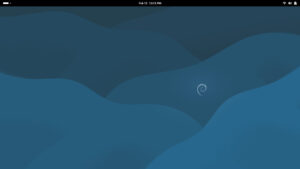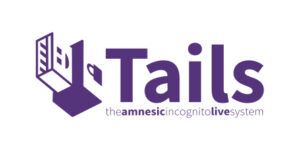The AlmaLinux Foundation says that the new distribution, which was made available on Tuesday, is not intended for production use, but is for developers working downstream of AlmaLinux OS.

The folks at AlmaLinux, the only Red Hat Enterprise Linux clone that isn’t really a clone (even though by design it acts exactly like it is) today announced that it has released AlmaLinux OS Kitten.
Before you get excited about having a new distro to play around with, this isn’t a distribution that you’re going to want to use in production. It’s intended for downstream developers building off of AlmaLinux.
“Earlier this year we noticed that CentOS Stream 10’s code was available on the repos and was getting ready to be shipped, so we started building our pipeline for AlmaLinux 10, anticipating that next year Red Hat will release RHEL 10 based on CentOS Stream 10,” AlmaLinux’s chair and main spokesperson, benny Vasquez, explained to me in a Zoom call on Friday.
This way, she added, “we could start getting ready now.”
In a way she was explaining one of the advantages of AlmaLinux’s clone/not-a-clone approach to building AlmaLinux, whose users depend on it to be a drop-in replacement for RHEL. Since Red Hat builds RHEL off of CentOS Stream, then Alma devs can go ahead and start building their next version now, knowing that when RHEL 10 comes out they’ll likely only need to made a few minor adjustments before pushing AlmaLinux 10 out the door.
Cool beans, eh? But wait, there’s more…
“As we got deeper into that, we realized that there was an opportunity for us to support the downstream operating systems and builders that are using AlmaLinux as their upstream,” she said. “For example, one of our platinum sponsors is CyberTrust Japan. They build an operating system called Miracle Linux and their version 10 is going to be based on AlmaLinux 10. So, we realized that if we get this set up correctly, they can start working on their build infrastructure and getting their teams ready, even now.”
I’m sure you see where this is going. Since Alma devs have been working on developing the upcoming AlmaLinux 10 using not ready for prime time CentOS 10 code, and since downstream developers who base their work on AlmaLinux would traditionally be twiddling their thumbs waiting for AlmaLinux 10 to be released, the Alma folks have decided to go ahead and make the work they’re doing now available to downstream under the name AlmaLinux OS Kitten 10.
“The thing that I want to make very clear is that this is not AlmaLinux Stream,” Vasquez said.
In other words, the Kitten release shouldn’t be seen as anything more or less than a build and development base for AlmaLinux 10, and as a tool that can be used by downstream developers. You might liken it to a nightly build, except that it will only be upgraded once every three months… so, a quarterly build if you will.
Other Alma Developer Developments
The chefs at Alma are throwing a few more ideas against the wall to see if they stick.
One has to do with plugging a hole that Red Hat is creating by dropping support for x86-64-v2 CPUs starting with RHEL 10. The trouble is, as Vasquez explained, “we have members, people in our community, who still want to be able to use that old hardware.”
Those people with old hardware represent a lot of servers, she said, and they want to keep them running not just to avoid having to purchase new hardware, but for ecological reasons as well.
“A consistent request from our community is for us to help them maintain their hardware longer,” she explained, “to keep hardware out of the landfills when it doesn’t need to be there.”
AlmaLinux’s solution will be to follow Red Hat’s lead and ship AlmaLinux with x86-64-v3 optimized binaries by default, but to provide another version of the distro with x86-64-v2 architecture for older machines that don’t support modern CPU feature sets. V2 users should note, however, that third party packages for RHEL10 will be built for x86-64-v3 only, so users of x86-64-v2 who need more than the default OS package set will need to rebuild any additional packages they require.
AlmaLinux is also re-enabling frame pointers, which are disabled by default in RHEL and CentOS Stream.
Accessing Kitten
Those wanting to download AlmaLinux OS Kitten can find download links on the distributions release notes page. In addition, the software may be available on some, but not all, AlmaLinux mirror sites.
“It’s gonna be a secondary module for mirrors, so it won’t be on every single mirror,” Vasquez said. “But you will be able to download it from our mirrors. If mirror owners want to start to mirror that content, there’ll be directions for how to do that on their wiki.”
On Monday morning, benny Vasquez will be talking on The state of AlmaLinux at the All Things Open conference in Raleigh, North Carolina.
Christine Hall has been a journalist since 1971. In 2001, she began writing a weekly consumer computer column and started covering Linux and FOSS in 2002 after making the switch to GNU/Linux. Follow her on Twitter: @BrideOfLinux









